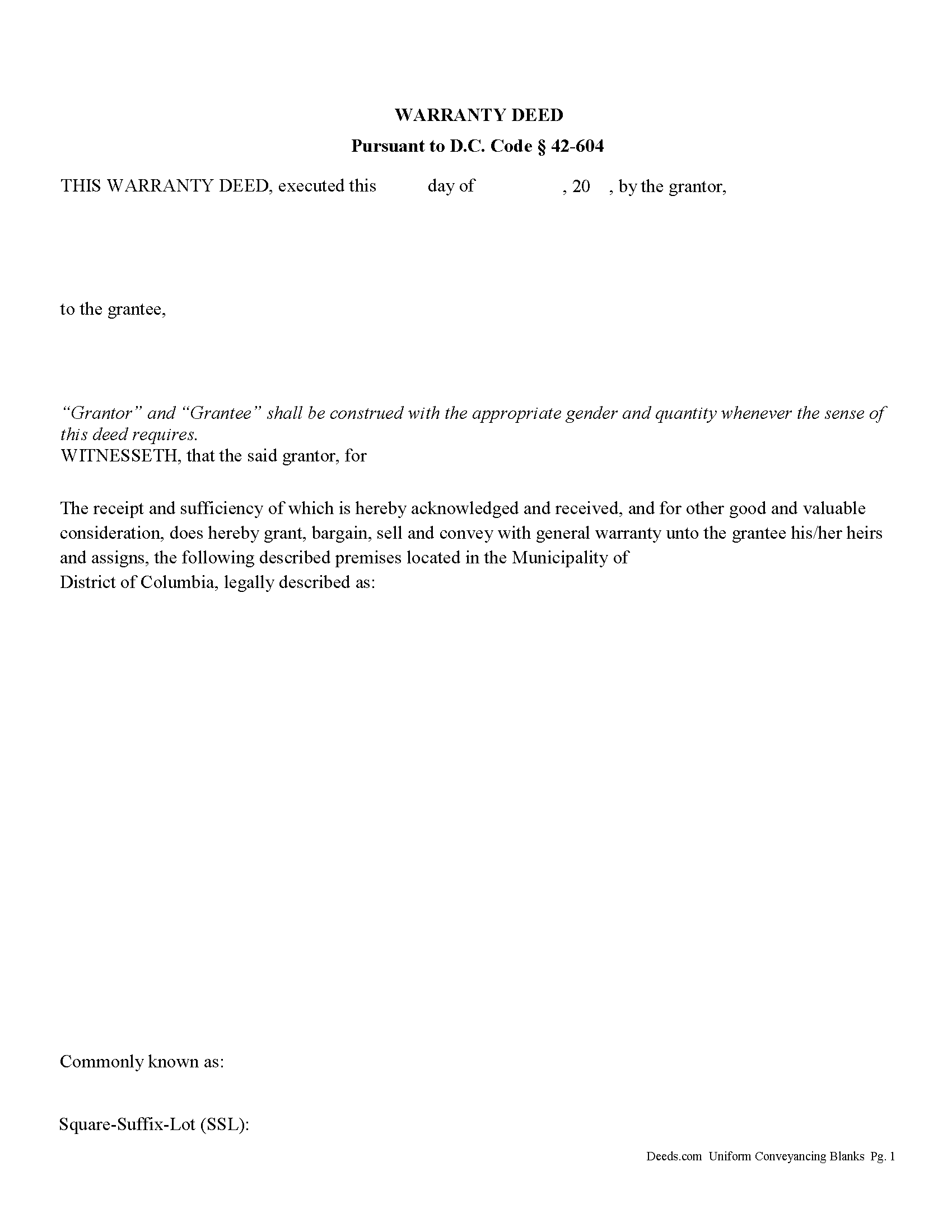Download District Of Columbia Warranty Deed Legal Forms

District Of Columbia Warranty Deed Overview

Any interest in or claim to real estate in the District of Columbia, whether for present or future possession and enjoyment, and whether vested or contingent, may be disposed of or created by a deed or will in writing ( 42-301). The statutory forms for conveyances of real property, as presented in 42-601 of the District of Columbia Code, are sufficient for their respective purposes. Any covenant, restriction, limitation, or provision allowed by law can be added, attached to, or introduced in the forms provided. Additionally, any other form conforming to the rules presented in the statutes will be sufficient for a conveyance of real property.
A covenant in a Washington, D.C. general warranty deed by the grantor "that he will warrant generally the property hereby conveyed" or a grant of real estate in which the granting words are followed by the words "with general warranty" will have the same effect as if the grantor had covenanted that he, his heirs, devisees, and personal representatives will warrant and defend the said property unto the grantee, his heirs, devisees, personal representatives, and assigns against the claims and demands of all persons ( 42-604).
If a warranty deed is not properly executed or acknowledged, it is not recordable ( 42-407). The grantor to a warranty deed must sign the instrument and have his signature acknowledged upon presenting the deed to the Recorder of Deeds. A notarial act may be performed within the District of Columbia by the following persons: a notary public of the District; a judge, clerk, or deputy clerk of any court of the District; or any other person authorized to perform a notarial act ( 42-143). If a notary act is performed in another state by a person authorized to do so, it will have the same effect under the laws of the District ( 42-144). A "notarial act" is defined as taking an acknowledgement, administering an oath or affirmation, taking verification upon oath or administration, witnessing or attesting a signature, or any other similar act authorized by law ( 42-141). Notarial acts should be evidenced by a certificate that has been signed and dated by the notarial officer performing the act ( 42-147).
A warranty deed conveying real property in the District, or interest therein, that is executed and acknowledged and certified as provided, and delivered to the person in whose favor the instrument is executed, will be held to take effect from the date of delivery thereof. However, as to creditors and subsequent bona fide purchasers and mortgagees without notice of the deed, and others interested in said property, the warranty deed will only take effect from the time of its delivery to the Recorder of Deeds for recordation ( 42-401). When two or more deeds pertaining to the same property are made to bona fide purchasers for value without notice, the deed or deeds that are first recorded according to law will be preferred ( 42-406).